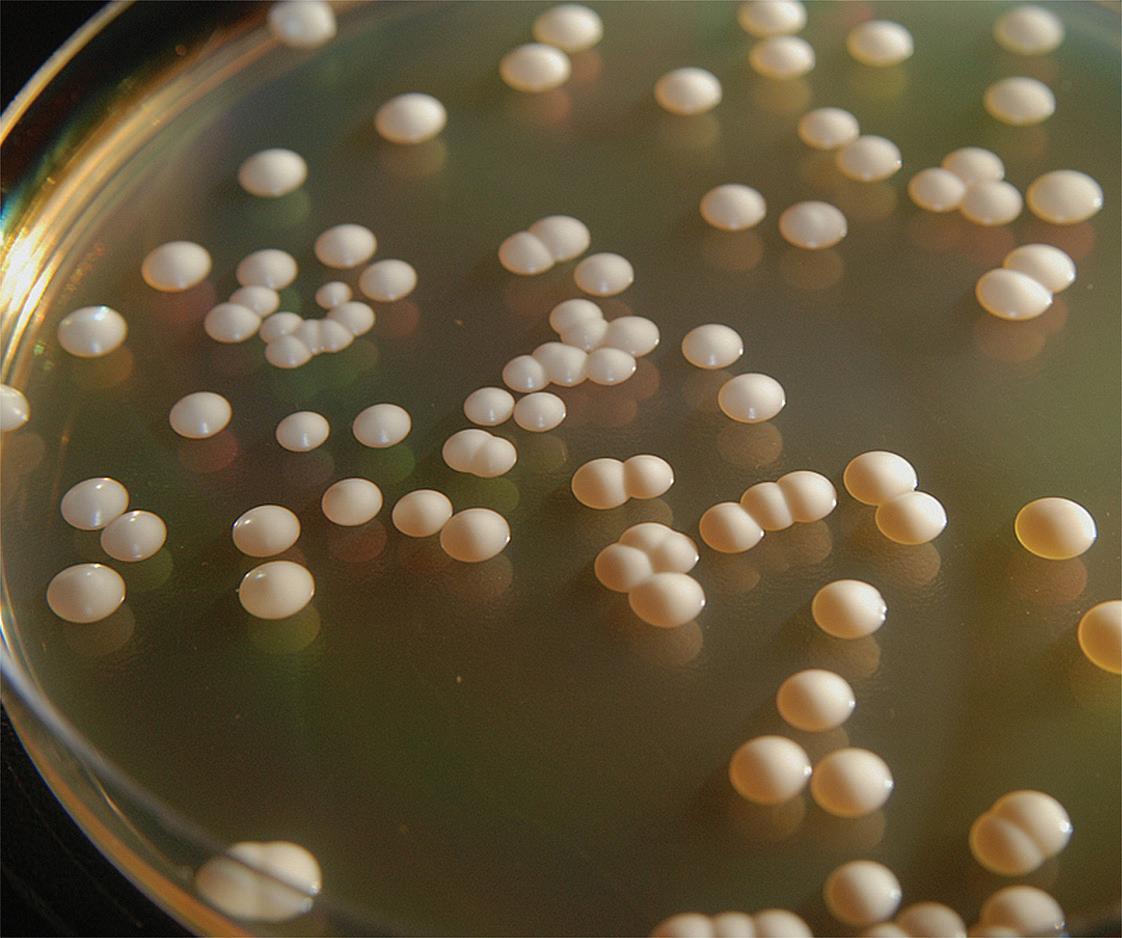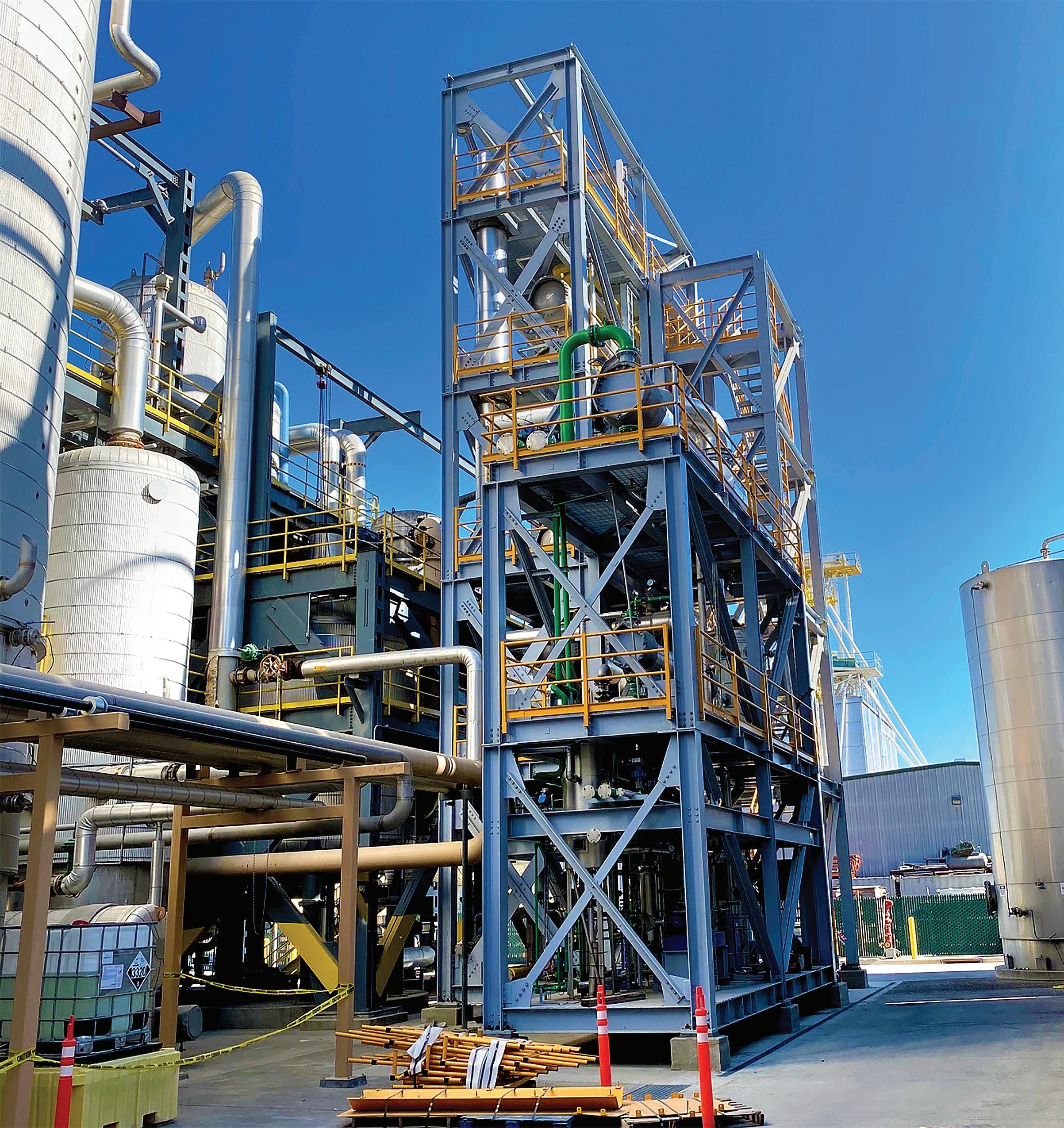
3 minute read
DuPont Nutrition & Biosciences
PHOTO: DUPONT NUTRITION & BIOSCIENCES
New High-Yield Yeast Launches Despite Pandemic Challenges
The ethanol industry is driven to innovate, demonstrated by how producers adapted to the challenges thrown up by the pandemic this spring, says Hans Foerster, business director of yeast for DuPont Nutrition & Biosciences’ biorefineries business unit. “It shows the degree of optimism,” he says. “Ethanol producers said, ‘We can get through this, we just have to figure out how.’” The first questions fielded by the DuPont fermentation experts dealt with shutting down to a hot idle, followed by questions on how to best manage stretching out fermentations to as long as 100 hours in an effort to slow down ethanol production while still producing some feed for customers. That was quickly followed by how to meet specifications for ethanol used in hand Foerster sanitizer. “I’d say in the span of four or five months, the ethanol industry has gone through years worth of adaptation,” Foerster says.
In the midst of it, Foerster was pleased to hear from DuPont’s precommercial partners that, yes, they wanted to run the planned fullscale trials of the newest yeast offering. “If you would have asked me in March, I never would have predicted that we’d be ready to launch this fall,” he says.
The new yeast, SYNERXIA® RUBY, builds on the decade of work the company has invested in yeast improvements. The sales and technical service teams help identify the industry’s needs, which drives the R&D team to put together an array of new traits they’ve found in their yeast discovery efforts. The most promising combinations are assessed in laboratory shake flask fermentations before going to commercial trials. After a pause to evaluate the results, the discovery process begins again. “Since 2013, when we introduced our first yeast, we’ve done this more than a dozen times,” Foerster says. “Though, not all strains make it to the marketplace.”
“In the case of SYNERXIA® RUBY, the R&D team came to us a year ago and said, ‘These are the five or six strains that could meet your customers’ goals,’” Foerster says. “We winnowed that to three prototypes—one better at expressing glucoamylase, another more robust in certain cases, one that promised the highest yields.”
“We took those three to our precommercial partners and asked, ‘Do you want to be the first to run this at 800,000 gallon scale?’” Foerster explains. “That’s only a reasonable question because of the special relationships that have taken our scientists, sales and tech service professionals and customers a long time to build.”
When it became evident in March that this year would be unlike any other, the partner plants agreed to continue with the planned trials. Even though the DuPont team would not be there in person, they would consult remotely. “It’s a testament to the quality of the folks, both customers, science and tech service teams, that they focused on this when they had so many other things to worry about,” Foerster says.
“Since early this year, when they pitched the first propagator of what’s become SYNERXIA® RUBY, it’s been run hundreds of times across multiple plants and a wide array of conditions,” he says. “The task is to learn whether this yeast works the same at this drastically larger scale as in the lab. We’ve been positively surprised. There are some differences, but it has worked from a robustness perspective as well or better than in the lab.”
The new yeast was chosen for its significantly better yield than SYNERXIA® THRIVE GX, DuPont’s previous leader, with improved robustness. “It’s no good having great performance for 98 percent of fermentations and giving it all away on the remaining 2 percent,” Foerster says. Certain process excursions are unavoidable, such as high temperatures during summer heat waves, plus yeasts need to be robust enough to perform well when organic acids begin to rise due to budding infections.
Foerster predicts that while SYNERXIA® RUBY, outperforms DuPont’s earlier yeasts, it won’t be the last offering from the company’s EXCELIS® Ethanol Solutions platform. “Even though the first full genetic sequence of S. cerevisiae was published more than 20 years ago, we are still discovering new genes that impact yeast performance. DuPont will keep innovating for our customers and we’ll continue to offer higher yielding and more robust strains to the marketplace.”






